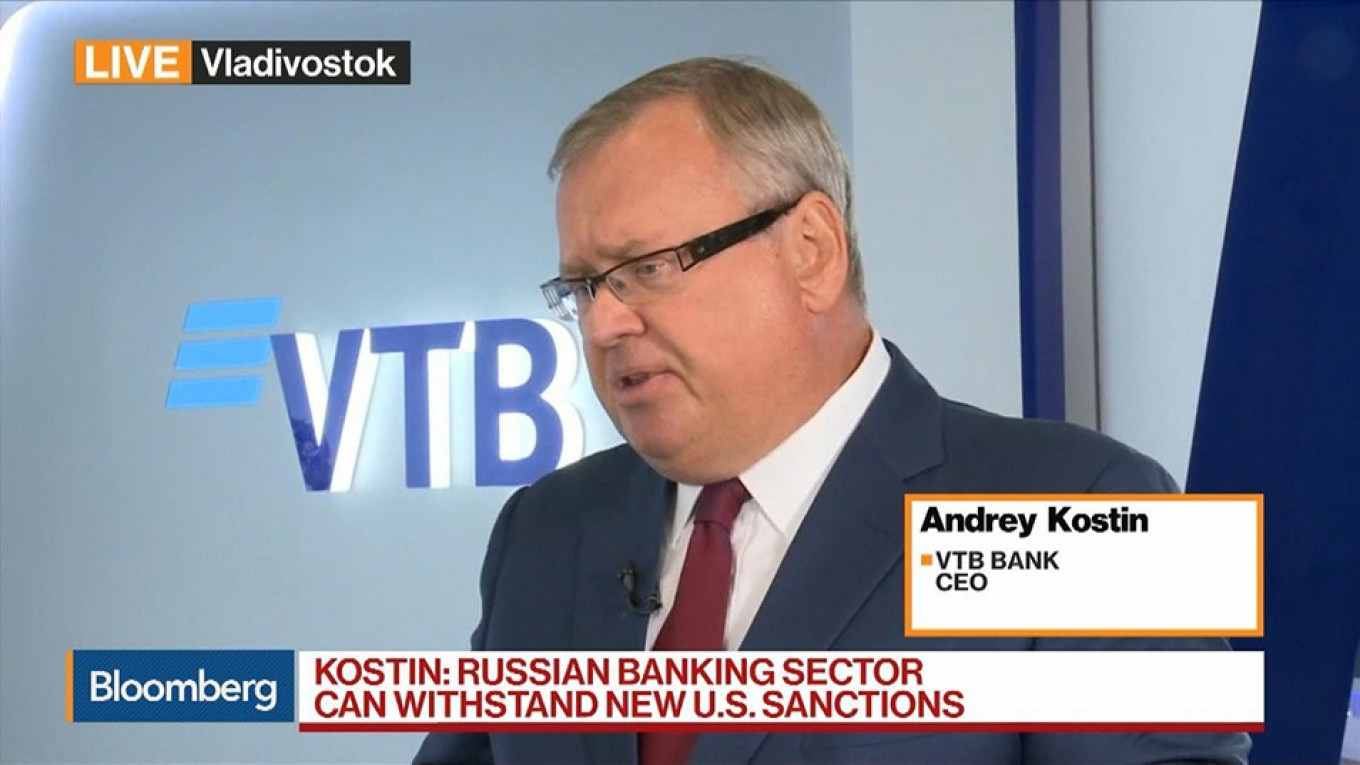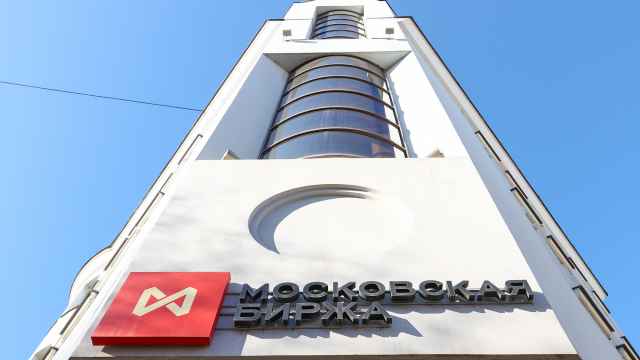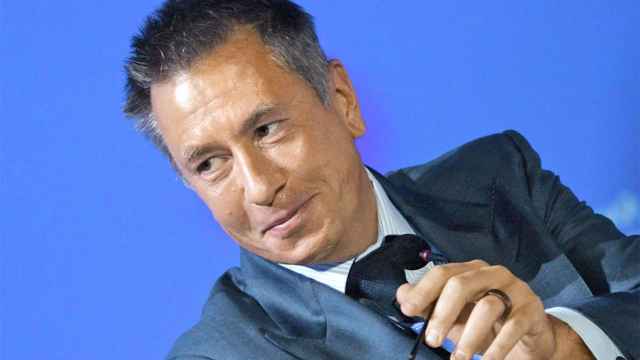Russians with bank accounts in dollars may find they can only make withdrawals in other currencies if new sanctions proposed by U.S. lawmakers take effect.
“I am sure that all the clients of all banks should receive their money back; that’s the principal approach,” VTB Group Chief Executive Officer Andrei Kostin said on Wednesday. “How, in which currency, is a different story.”
The U.S. Senate is considering punishing the Kremlin for alleged election meddling, including a fresh raft of measures dubbed the “bill from hell.” This could bar Americans from buying new issues of Russian sovereign debt and ban Russia’s largest state banks, such as VTB, from using dollars.
Kostin’s comments are an indication to markets that policy makers and businesses are bracing for the worst, and could focus investors’ attention on the possible fallout from sanctions, according to Liza Ermolenko, an economist at Barclays Capital in London.
“Measures against banks in their current wording would completely paralyze Russia’s financial system,” Ermolenko said. “With Russia being a major exporter and relying heavily on international transactions, that would be a massive blow.”
Corporate Deposits
About 20 percent of Russians’ savings and a third of corporate deposits are held in foreign currencies, according to central bank data. The three biggest retail deposit holders — Sberbank PJSC, VTB and Rosselkhozbank JSC — all are listed in the Senate’s draft law as potentially facing a ban on dollar transactions.
Russia’s biggest lenders have boosted top-line interest rates they pay on dollar deposits over the last six months by an average of 0.33 percentage points, with state banks offering the biggest increases, according to data from Frank RG.
Sberbank, which holds 45 percent of Russia’s retail deposits, had an outflow of 1.1 percent from individuals’ accounts in August, when calculated at a constant exchange rate. Kostin said VTB didn’t experience any unusual withdrawals last month.
“We are getting ready for the development of any situation, and definitely I think the Russian banking sector, with the help of the Russian central bank, can stand further sanctions,” Kostin said on Bloomberg TV.
A Message from The Moscow Times:
Dear readers,
We are facing unprecedented challenges. Russia's Prosecutor General's Office has designated The Moscow Times as an "undesirable" organization, criminalizing our work and putting our staff at risk of prosecution. This follows our earlier unjust labeling as a "foreign agent."
These actions are direct attempts to silence independent journalism in Russia. The authorities claim our work "discredits the decisions of the Russian leadership." We see things differently: we strive to provide accurate, unbiased reporting on Russia.
We, the journalists of The Moscow Times, refuse to be silenced. But to continue our work, we need your help.
Your support, no matter how small, makes a world of difference. If you can, please support us monthly starting from just $2. It's quick to set up, and every contribution makes a significant impact.
By supporting The Moscow Times, you're defending open, independent journalism in the face of repression. Thank you for standing with us.
Remind me later.






